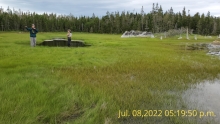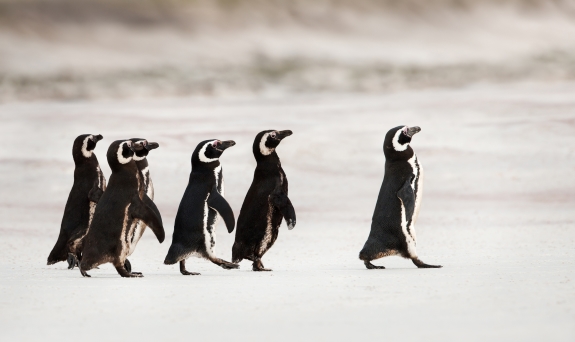How do stars form in distant galaxies? Astronomers have long been trying to answer this question by detecting radio signals emitted by nearby galaxies. However, these signals become weaker the further away a galaxy is from Earth, making it difficult for current radio telescopes to pick up.


To better understand food-related decisions during the pandemic, a team of McGill researchers, including School of Human Nutrition Professor Daiva Nielsen and postdoctoral fellow Katherine Labonté, conducted an online survey among a sample of adults from Quebec to compare grocery shopping behaviours in 2019 and 2020. The study showed that at the beginning of the pandemic, people reduced the frequency of in-store shopping expeditions. This reduction occurred in tandem with a rise in curbside pick-up and delivery.

In the electronic dance music (EDM) community, what is viewed as intellectual property theft isn’t always up to the law—it’s up to the community. Norms around unlawful activities, such as illegal remixing, are often ambiguous and situation-specific. Ironically, illegal remixes can garner support, even career-launching acclaim.

Certain tech companies are promising dazzling futures when it comes to transportation, like Uber’s vision of skies buzzing with helicopter-like flying cars, and Elon Musk’s design for layers upon layers of automobile tunnels below city streets.

About a quarter of the world’s electricity currently comes from power plants fired by natural gas. These contribute significantly to global greenhouse gas emissions (amounting to 10% of energy-related emissions according to the most recent figures from 2017) and climate change.

Women who experience recent intimate partner violence (IPV) are three times more likely to contract HIV, according to a new study led by McGill University researchers. In regions like Sub-Saharan Africa, women face an intersecting epidemic of intimate partner violence and HIV.
“Worldwide, more than one in four women experience intimate partner violence in their lifetime," says McGill University Professor Mathieu Maheu-Giroux, a Canada Research Chair in Population Health Modeling.

Microraptor was an opportunistic predator, feeding on fish, birds, lizards – and now small mammals. The discovery of a rare fossil reveals the creature was a generalist carnivore in the ancient ecosystem of dinosaurs.

Circular economy may alleviate environmental impact of holiday shopping

Artificial intelligence chatbots that show positive feelings — such as adding an “I am excited to do so!” or a few exclamation marks — do not necessarily translate into positive reactions or contribute to higher customer satisfaction, according to a recent study by researchers from the University of South Florida, the Georgia Institute of Technology and McGill University.

To better understand the evolution of flowers, researchers from Montreal are harnessing photogrammetry – a technique commonly used by geographers to reconstruct landscape topography. This is the first time scientists have used the technique to study flowers.
The team, including researchers from McGill University, Université de Montréal, and the Montreal Botanical Garden, published the results of their work in the journal New Phytologist.

Cities are responsible for almost 1/5th of the global methane emissions caused by human activities. But most cities don’t capture information about the full range of sources of this powerful greenhouse gas. In 2020, a team led by McGill University, measured methane emissions from various sources across the city of Montreal.

Research shows that early childhood gambling experiences, including those with lottery products, can be a risk factor for gambling problems later in life.
This research prompted the International Centre for Youth Gambling Problems and High-Risk Behaviors at McGill University and the U.S. National Council on Problem Gambling (NCPG) to join forces in developing the Gift Responsibly Campaign. Since 2001, the simple goal of the Campaign is to raise awareness about the risks of underage lottery play.

Eleven Quebec universities have joined forces and signed the Nature Positive Pledge, becoming founding members of an international movement that includes 117 universities worldwide.

Enhancing carbon storage in natural ecosystems could put a small but significant dent in Canada’s greenhouse gas (GHG) emissions, but an aggressive commitment to reducing human-caused emissions remains critically important, according to a new expert panel report from the Council of Canadian Academies (CCA), co-authored by McGill Professor Gail L. Chmura in the Department of Geography.

